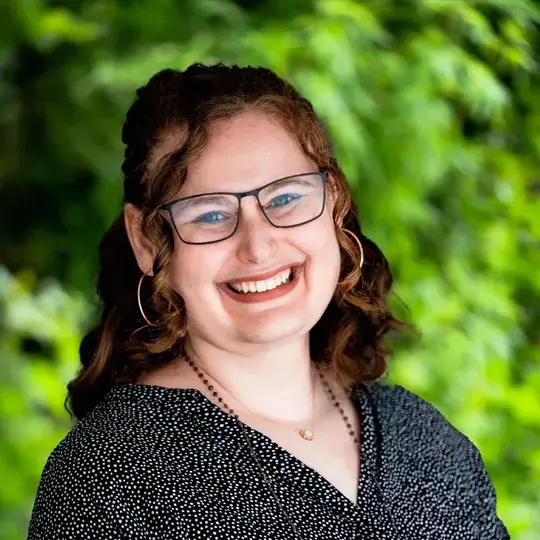The COVID-19 pandemic resulted in more than 6.86 million deaths worldwide – with almost every country, city, and territory feeling the devastation caused by the virus. Even after the virus’ peak, a ripple effect has remained, truly changing what people around the world define as “normal.” As scientists and healthcare professionals learn more about the COVID-19 virus, new symptoms and long-term effects are being discovered – like long COVID depression.

What is COVID-19?
COVID-19 is an infectious disease caused by the novel coronavirus SARS-CoV-2. It was first identified in December 2019 in Wuhan, Hubei province, China, and has since spread globally, leading to an ongoing pandemic.
The virus primarily spreads through respiratory droplets when an infected person coughs, sneezes, or talks, and it can also spread by touching surfaces contaminated with the virus and then touching one’s face. COVID-19 can cause a wide range of symptoms, from mild to severe, and some individuals infected with the virus may remain asymptomatic, meaning they show no symptoms at all.
Common symptoms of COVID-19 include fever, cough, shortness of breath, fatigue, muscle or body aches, headache, loss of taste or smell, sore throat, congestion or runny nose, nausea or vomiting, and diarrhea. In severe cases, the virus can lead to pneumonia, acute respiratory distress syndrome (ARDS), organ failure, and death, particularly in older adults and those with underlying health conditions.
The Emergence of Long COVID
Long COVID, also known as post-acute sequelae of SARS-CoV-2 infection (PASC), refers to a range of persistent symptoms that continue for weeks or months after the acute phase of COVID-19 has resolved. While many individuals recover from COVID-19 within a few weeks, some experience lingering symptoms that can significantly impact their quality of life and ability to function.
The symptoms of long COVID are diverse and can affect various bodily systems, including respiratory, cardiovascular, neurological, gastrointestinal, and psychological. Common symptoms include fatigue, shortness of breath, chest pain, joint pain, muscle weakness, cognitive difficulties (often referred to as “brain fog”), sleep disturbances, and depression or anxiety.
Long COVID Depression
Long COVID depression refers to a mental health condition that presents with persistent or recurring feelings of sadness, hopelessness, and loss of interest in activities that may develop or persist in individuals who have experienced COVID-19 infection, even after the acute phase of the illness has resolved. This type of depression is one of the many potential long-term effects of COVID-19.
The symptoms of long COVID depression can vary but may include:
- Persistent Low Mood: Individuals may experience ongoing feelings of sadness, emptiness, or despair that do not improve over time.
- Fatigue: Chronic fatigue is a common symptom of both long COVID and depression, and individuals with long COVID depression may experience profound and debilitating tiredness that interferes with daily functioning.
- Sleep Disturbances: Insomnia, disrupted sleep patterns, or excessive sleeping can occur in individuals with long COVID depression, exacerbating feelings of fatigue and impairing overall well-being.
- Difficulty Concentrating: Cognitive difficulties, such as brain fog or difficulty concentrating, are common in both long COVID and depression and can further exacerbate feelings of frustration and helplessness.
- Loss of Interest or Pleasure: Anhedonia, or the inability to experience pleasure from activities that were previously enjoyable, is a hallmark symptom of depression and may persist in individuals with long COVID.
- Irritability or Agitation: Feelings of irritability, restlessness, or agitation may be present in individuals with long COVID depression, leading to interpersonal difficulties and conflict.
- Physical Symptoms: Depression can manifest as physical symptoms such as headaches, digestive issues, or muscle aches, which may be exacerbated by the lingering effects of COVID-19.
- Anxiety: Anxiety disorders frequently co-occur with depression, and individuals with long COVID may experience heightened levels of anxiety about their health, the future, or the impact of the illness on their lives.

Types of Treatment Available for Long COVID Depression
Treating long COVID depression requires a comprehensive approach that addresses both the physical and psychological aspects of the illness. It’s essential for individuals with long COVID depression to work closely with a healthcare provider to develop a personalized treatment plan that addresses their unique needs and preferences.
Here are some types of treatment that may be beneficial:
- Medication: Antidepressant medications are commonly prescribed to treat depression. Selective serotonin reuptake inhibitors (SSRIs) and serotonin-norepinephrine reuptake inhibitors (SNRIs) are often the first-line treatment options. These medications work by increasing the levels of neurotransmitters such as serotonin and norepinephrine in the brain, which can help alleviate depressive symptoms. It’s essential to work closely with a healthcare provider to find the right medication and dosage that works best for each individual.
- Psychotherapy: Various forms of psychotherapy, such as cognitive-behavioral therapy (CBT), interpersonal therapy (IPT), and mindfulness-based cognitive therapy (MBCT), can be effective in treating depression. These therapies help individuals identify and challenge negative thought patterns, learn coping skills, improve interpersonal relationships, and develop mindfulness techniques to manage stress and anxiety.
- Supportive Counseling: Supportive counseling provides a safe and non-judgmental space for individuals to express their feelings, discuss their concerns, and receive emotional support. It can help individuals process their experiences with COVID-19, navigate the challenges of recovery, and develop adaptive coping strategies for managing depression symptoms.
- Peer Support Groups: Connecting with others who have experienced similar challenges can be incredibly validating and empowering for individuals with long COVID depression. Peer support groups offer opportunities for social connection, shared experiences, and mutual support, which can reduce feelings of isolation and loneliness and provide a sense of belonging and validation.
- Lifestyle Modifications: Making healthy lifestyle choices can play a significant role in managing depression symptoms. Regular physical activity, such as walking, cycling, or yoga, can help improve mood, reduce stress, and increase energy levels. Prioritizing sleep hygiene, maintaining a balanced diet, and avoiding alcohol and substance abuse can also support overall mental health and well-being.
- Mind-Body Practices: Mindfulness meditation, deep breathing exercises, progressive muscle relaxation, and other mind-body practices can help individuals manage stress, regulate emotions, and promote relaxation. These techniques can be particularly helpful for individuals experiencing anxiety or rumination related to their illness.
- Holistic Approaches: Some individuals may benefit from complementary and alternative therapies such as acupuncture, massage therapy, or herbal supplements. While the evidence for these treatments in treating depression is mixed, some people find them helpful as part of a holistic approach to managing their symptoms.
- Collaborative Care: Collaborative care models involve coordination between primary care providers, mental health professionals, and other specialists to ensure comprehensive and integrated support for individuals with long COVID depression. This may include regular monitoring of symptoms, medication management, and referrals to specialized services as needed.
Seeking Treatment for Long COVID Depression
Mental health is something to be taken seriously – even when it stems from a virus that caused a global pandemic. Launch Centers knows how mental health can impact the body, mind, and spirit, and requires a comprehensive approach to care that focuses on the whole body, not just the symptoms. Reach out to us today if you believe you or a loved one is suffering from long COVID depression, and let us help create a treatment program that facilitates a happier, healthier life.






